For drivers, it is common for them to have problems while moving. Among them is the phenomenon of the car jerking when the driver accelerates. This incident is quite dangerous for both your driver and your car. The causes of car jerking problems can come from the engine or transmission system.
The following article will introduce you to 10 reasons why your car is jerking. The best way to fix that problem is to go to a driver repair center as soon as possible.
Signs To Know Your Car Is Jerked
Sometimes we even overlook the fact that our car jerks abnormally. They often ignore this incident and do not know that their car is in danger. The reason is that the car driver does not fully understand what a jerky car incident is. Therefore, you can rely on some of the following phenomena to recognize a car jerking problem.
When the car jerks, you will feel that the vehicle does not have the necessary power to move forward. Even if you press down on the accelerator, your car will suddenly stop and suddenly rush forward.
This process will repeat more when the problem is not fixed in time. Another situation is when you try to accelerate the car, but the jerking will prevent you from going faster and maintaining the speed.
10 Reasons Why Your Car Jerks While Driving
Most people do not fully understand their car, so they cannot distinguish the causes of the car jerking. You can refer to the 10 reasons below to know the current condition of your car.
Dirty Fuel Injectors
Dirty Fuel Injectors (link)
Dirty Fuel Injectors are one of the most common reasons for sudden car jerks. Specifically, it affects the accelerator pedal, making the part unable to work properly.
When the fuel injectors are dirty, your car will suddenly lose power while trying to accelerate or maintain the right speed. This is the result of an engine that burns out wrongly, providing the wrong fuel rating.
Blockages
Blockages are the next cause of your car jerking. Because it prevents your car from getting the fuel it needs to accelerate. Fuel mixes with air to create an injection spark that powers your engine. If anything interferes with fuel transmission, it will have negative consequences, such as sudden acceleration of the vehicle.
Worn Out Spark Plugs
Worn Out Spark Plugs are one of the causes of car jerking. Your spark plugs may be corroded and may not ignite the fuel in the pistons fast enough. It is this limitation that will make your car unable to accelerate as desired.
However, because buying spark plugs is not too expensive, you can replace them immediately to improve the car’s performance.
Dirty Air Filters
Dirty Air Filters (link)
The air filter is one of the important details in removing pollutants from your engine. However, over time, these pollutants can build up and make your vehicle unstoppable.
Because the substances will reduce the air filter’s ability to filter the air, your car is not guaranteed good quality. To fix this situation, you just need to remove and clean the air filter and reuse it.
Damaged Cylinders
Damaged engine cylinders can affect the engine’s ability to operate, leading to loss of engine control. To overcome this situation, you need the help of car repair technicians. They will replace it if needed, ensuring your car is not jerked.
Blocked Catalytic Converters
Blocked Catalytic Converters could be the next cause of your car’s jerking. When the air-fuel mixture passes through the catalytic converter too large, a blockage can result.
Therefore, when the driver presses the accelerator, a sudden jerk will occur, which is dangerous for both people and vehicles. To fix this problem, you can either replace the catalytic converter or contact a service center.
Damaged Gas Lines
Damaged Gas Lines (link)
Damaged Gas Lines are the next typical cause you need to be concerned about. All gases flowing in the engine must pass through the airlines. However, when the throttle part has a problem, your car can lose pressure and jerk forward.
In some cases, your engine can catch on fire if the fuel line is constantly blocked. Therefore, you should carefully check the fuel line to make sure it does not have any faults.
In addition, there are 3 other reasons that you also need to pay attention to when having a car jerking problem:
- Damaged Acceleration Cables
- Defective Carburetors
- Moisture on the Distributor Cap
Some Frequently Asked Questions
Besides the causes of your car jerking, users also have some questions related to this topic. You can refer to some of the questions below to be able to answer questions for yourself.
Why is my car bucking?
If your car is sluggish, it could be caused by a clogged fuel filter. Over time, the filter will get dirty and clogged. At that time, the flow of gasoline transmitted to the engine will be reduced.
That is the cause of your car stalling, jerking. In addition, if the filter is worn out, fuel can be sprayed out, endangering your vehicle.
Why does my car jump when I accelerate?
The cause of your car jerking when accelerating is a fuel transmission problem. When the fuel is not supplied correctly to the engine, it can make it difficult to meet the fuel demand causing your vehicle to jerk.
What are the signs of a bad transmission?
You can refer to some of the following signs:
- Burning Smell
- Neutral Noises
- Slipping Gears
- Dragging Clutch
- Leaking Fluid
- Check Engine Light
- Grinding or Shaking
Conclusion
Hopefully, the article will help you better understand the causes of car jerking when stalling or in the process of maintaining speed. You can refer to the above 10 factors to know the current status of your car. From there, you will have appropriate solutions, ensuring the safety of both people and vehicles.

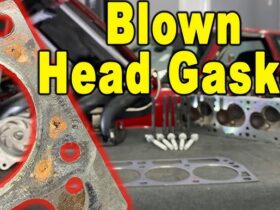
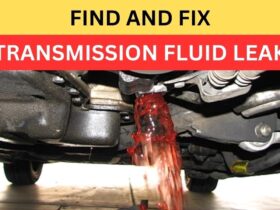
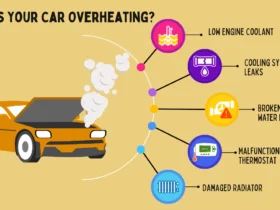
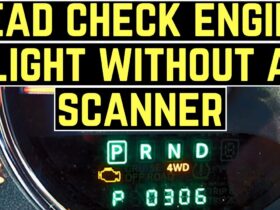
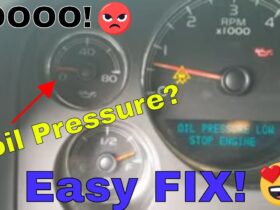
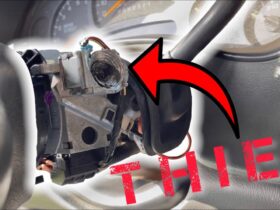

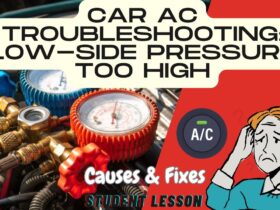
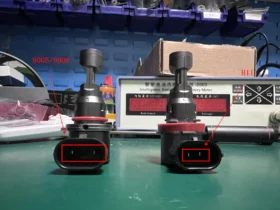
Leave a Reply